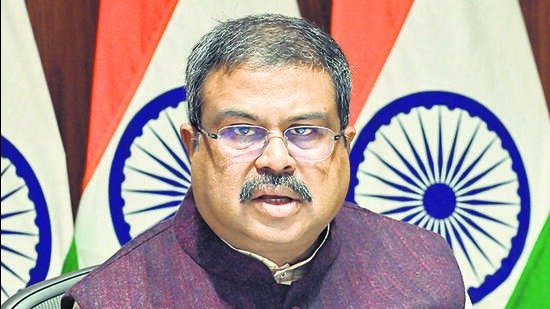ArdorComm News Network
February 22, 2025
The debate over the National Education Policy (NEP) 2020 has intensified, with Tamil Nadu strongly opposing the Centre’s insistence on implementing the policy in its entirety. Union Education Minister Dharmendra Pradhan recently stated that unless Tamil Nadu fully accepts the NEP, funds under the Samagra Shiksha scheme—amounting to over ₹2,158 crore—will not be released. This remark, made at the Kashi Tamil Sangamam in Varanasi, has triggered sharp reactions from Tamil Nadu’s political leadership.
Tamil Nadu School Education Minister Anbil Poyyamozhi responded by accusing the BJP-led central government of “paving the way for another language war.” He questioned why Tamil Nadu, which has successfully followed a two-language policy for decades, should be forced to adopt the three-language formula. Citing former Chief Minister CN Annadurai, he asserted that the demand for Tamil Nadu’s rightful share of funds was not a request for alms but a constitutional entitlement.
The state government highlighted that over 4 million students and 32,000 teachers rely on these funds, with Tamil Nadu itself spending ₹76 crore per month on teacher salaries and ₹400 crore annually on the Right to Education (RTE) scheme. Several schemes for girl child education have also been affected due to funding delays. The Tamil Nadu government has argued that withholding funds to push NEP implementation suppresses dissent and reignites the decades-old language debate in India.
Chief Minister MK Stalin strongly criticized the Centre, calling Pradhan’s stance “rash blackmail” and warning that Delhi must be prepared to face Tamil Nadu’s resistance. Finance Minister Thangam Thennarasu also questioned the conditional nature of central funds, pointing out that Tamil Nadu contributes 9% to India’s GDP without any such stipulations.
Anbumani Ramadoss, president of the Pattali Makkal Katchi (PMK), took a more balanced approach, stating that the Centre is duty-bound to disburse these funds irrespective of NEP compliance. He emphasized that NEP implementation and financial allocations should remain separate matters.
The Centre’s rigid stance on enforcing NEP, particularly through financial coercion, has been widely criticized as an overreach that disregards federal principles. The debate is now at the heart of a larger battle over education policy, language rights, and state autonomy in India.
Source: Hindustan


